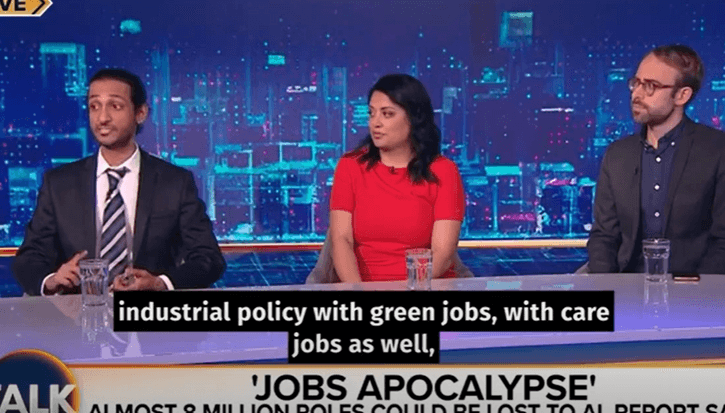Another one bites the dust
As Harper joins Abbott on the Anglosphere sideline, Britain turns instead towards ChinaArticle
In a matter of months, two of the poster boys of the conservative Anglosphere have been consigned to history. In September, Tony Abbott, the prime minister of Australia, was dumped by his own party in a leadership coup worthy of a Tarantino film, and now Stephen Harper, Canada’s long-serving premier, has been trounced by the resurgent Liberal party in his country’s general election. Of the UK’s partners in the ‘5-Eyes’ Anglosphere countries, only in New Zealand does the centre-right remain politically dominant.
In the short term, this will change the dynamics of climate change diplomacy. Justin Trudeau, Canada’s youthful new leader, has promised to engage fully at the forthcoming Paris climate change conference, and to establish a new carbon-pricing scheme in Canada. Abbott’s successor, Malcolm Turnbull, has yet to overhaul Australia’s emissions reduction policies, but he has a long-attested personal commitment to tackling climate change (and can at least say the words climate and change in the same sentence). ‘Farewell Fossil Fools’, said the Australian Business Review this morning. ‘The prospects for the forthcoming global climate conference to be held in Paris later this year have received a significant diplomatic boost,’ it declared. ‘The two developed-world leaders most intent on undermining the conference – Australia’s Tony Abbott and Canada’s Stephen Harper – have been dispatched to the political wilderness.’
Canada’s new government also cements the ascendancy of liberalism in North America. The Liberals’ manifesto is replete with classic liberal democratic commitments to open up and reform government, strengthen human rights, liberalise drug laws and promote science. It is multilateralist as well as environmentalist, and mildly redistributive, increasing taxes on the wealthy to boost middle-class income transfers. And it commits to increased investment in social infrastructure by running deficits over the next few years (though this investment spending is couched in the language of fiscal rectitude and is tied to a commitment to ‘balance the books’ by 2019/20).
Life for UK climate deniers may just have got a little harder, and Eurosceptic enthusiasts for the Anglosphere have lost two conservative icons. But it is hard to discern other impacts on British politics. British conservatives may have admired Stephen Harper, but they will not follow his path of sectarian and aggressive politics. They will carry on trying to colonise the progressive centre, and ensure they do not run into the sands with a leader past his sell-by date. If they are smart, they will poach a few of Trudeau’s policies too: encouraging international students and facilitating their integration, and stepping up the resettlement of Syrian refugees, to name just two.
And Trudeau’s more expansionary fiscal stance is unlikely to unsettle the basic dynamics of party competition on the economy in Britain, even if it makes Labour’s arguments for deficit financing for infrastructure more globally respectable (and the case for facilitating overseas investment in our nuclear plants even less convincing when UK public financing could do the trick much more cost-effectively).
Thus of greater long-term significance for British politics will be the other international event dominating the headlines today, the state visit of Chinese president Xi Jinping. That Asian outpost of the old imperial Anglosphere, Hong Kong, will not figure much in diplomatic discussions while he is here. The British government has placed its bet on a strategic partnership with the world’s rising power, and it won’t let the old world get in the way.
Related items

Forging ahead: Deciding the direction of IPPR's Migration Policy Unit
In our last blog post for the Migration Policy Unit we shared our new way of working as we endeavour to be inclusive and transparent in our policymaking process. In this blog we set out what our first and flagship project is for the policy…
Who gets a good deal? Revealing public attitudes to transport in Great Britain
Transport isn’t working. That’s the message from the British public. This is especially true if you’re on a low income, disabled or living in the countryside. The cost of living crisis has exposed the shortcomings of our transport system,…
Bhargav Srinivasa Desikan on TalkTV discussing AI
IPPR's Bhargav Srinivasa Desikan on TalkTV discussing his new report on the impact of generative AI on the UK labour market.